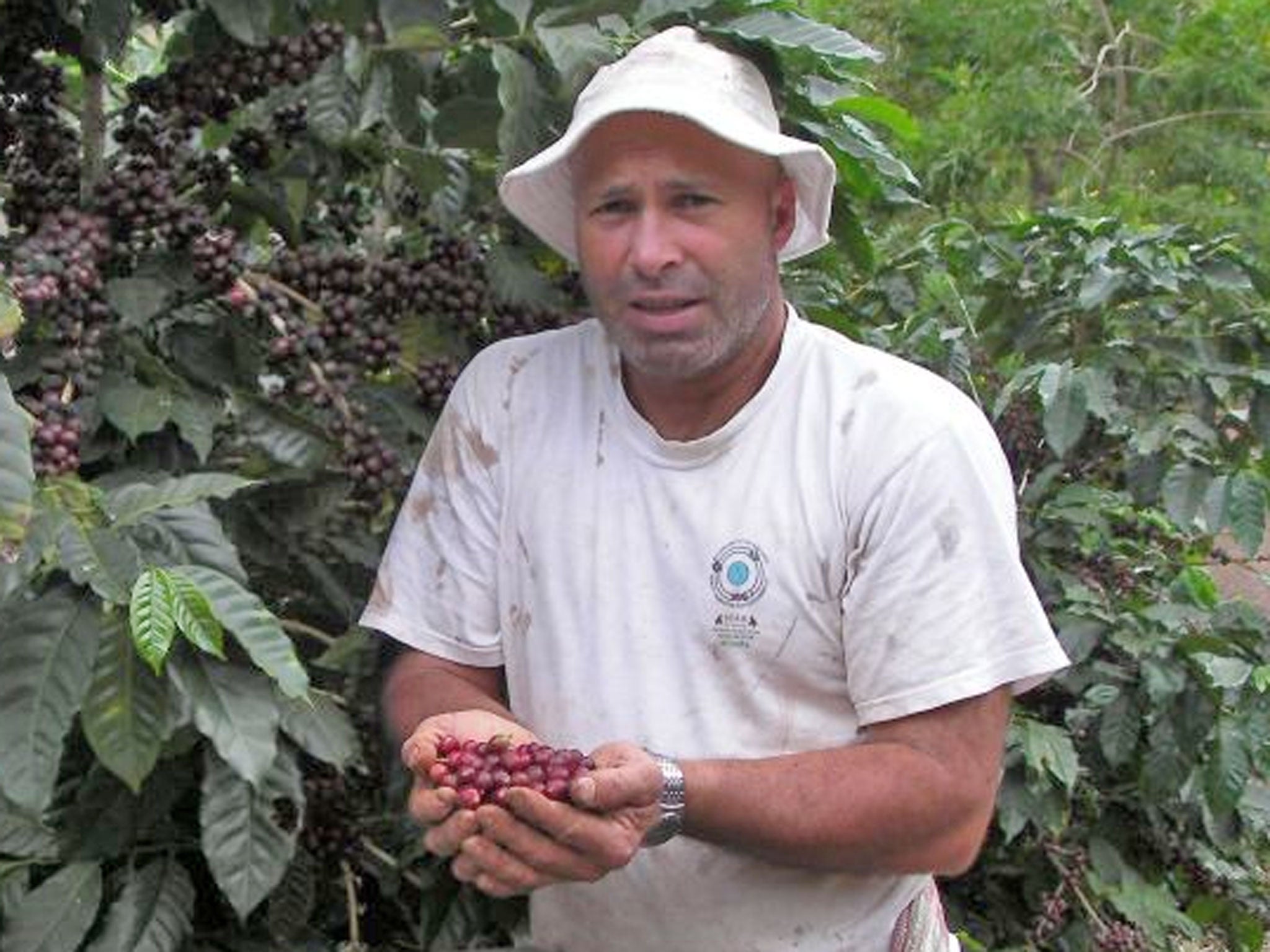Too much power in too few hands: Food giants take over the industry
Small producers face poverty as ever more commodities are controlled by a coterie of multinationals

Your support helps us to tell the story
From reproductive rights to climate change to Big Tech, The Independent is on the ground when the story is developing. Whether it's investigating the financials of Elon Musk's pro-Trump PAC or producing our latest documentary, 'The A Word', which shines a light on the American women fighting for reproductive rights, we know how important it is to parse out the facts from the messaging.
At such a critical moment in US history, we need reporters on the ground. Your donation allows us to keep sending journalists to speak to both sides of the story.
The Independent is trusted by Americans across the entire political spectrum. And unlike many other quality news outlets, we choose not to lock Americans out of our reporting and analysis with paywalls. We believe quality journalism should be available to everyone, paid for by those who can afford it.
Your support makes all the difference.As you sip your morning coffee or tea, accompanied perhaps by a chocolate biscuit, or a banana for the more health-conscious, think hard about where your breakfast comes from. Increasingly, a handful of multinationals are tightening their grip on the commodity markets, with potentially dramatic effects for consumers and food producers alike.
The livelihoods of millions of smallholders who produce the drinks and snacks we consume every day are "seriously under threat", warns a report to be published tomorrow to mark the start of Fairtraide Fortnight. Extreme price volatility, high food prices and more concentrated food markets threaten to leave farmers "condemned to poverty".
Three companies now account for more than 40 per cent of global coffee sales, eight companies control the supply of cocoa and chocolate, seven control 85 per cent of tea production, five account for 75 per cent of the world banana trade, and the largest six sugar traders account for about two-thirds of world trade, according to the new publication from the Fairtrade Foundation.
Such tight control of the markets by multinationals – which can use their "buyer power" to dictate how the supply chain is run – can leave smallholders "marginalised", surviving on precarious contracts, poverty wages, and with poor health and safety practices, the report warns. It stresses that, with the G8 summit to be held in Northern Ireland in June, this is the year "to put the politics of food on the public agenda and find better solutions to the insanity of our broken food system".
More people may be shopping ethically – sales of Fairtrade cocoa grew by more than 20 per cent last year to £153m – but, according to the report, the world's food system is "dangerously out of control". Cocoa growers now receive 3.5 to 6 per cent of the average retail value of a chocolate bar; in the 1980s they got 18 per cent.
The report is being published to coincide with the launch of a three-year food campaign by the Fairtrade Foundation, to "pull our broken food system back from the brink and make it work for all". Its recommendations include asking governments to ensure greater transparency and "fair competition" in international supply chains.
Michael Gidney, chief executive of the Fairtrade Foundation, said: "Putting too much power into the hands of too few companies increases the risk of exploitation in food supply chains, where producers have no choice but to sell for low prices, while consumers face a bewildering array of products on shop shelves even though their purchases benefit only a small number of brands.
"Unless we do something now, millions of small farmers are condemned to poverty. If they are in crisis, and farmers see no future in farming, then many of our foods could be at risk."
About 500 million smallholders produce 70 per cent of the world's food, but make up half the world's hungry. Women at are the helm – producing 60 to 80 per cent of the food in developing countries and acting as the main producers.
'Last year I got $2.20 per pound, this year $1.40'
Gerardo Arias Camacho, 43, a coffee farmer from Costa Rica, has been producing coffee since he was taken out of school to help his father at the age of 10. He works 13 hours a day to produce coffee from five hectares. Mr Camacho, a board member of the first Fairtrade-certified co-op in his country, said this year he might struggle to profit at all from some of the coffee he sells.
"About 40 per cent of our coffee is sold to multinationals, but the problem with the free market is there is no minimum price. Last year, I got $2.20 per pound of coffee; this year it's about $1.40. This is really bad for us, as the cost of producing is about $1.60.
"They really don't care about what problems we have here in our village; we worry about having enough food, clothes, and enough money to send our kids to school. Small roasting companies have direct relations with us, know our needs and understand us. This makes a big difference."
Join our commenting forum
Join thought-provoking conversations, follow other Independent readers and see their replies
Comments